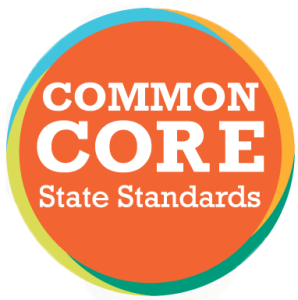‘Read-Aloud’ Assistance on Common Core Testing Causing Controversy
Written by Sandie Barrie Blackley, Speech-Language Pathologist
Published on February 13, 2014
 Since 1990, the National Center for Educational Outcomes has been tracking accommodations policies for students with disabilities. Currently, several states allow text passages to be read aloud to students with certain disabilities. This practice is referred to as ‘Read-Aloud Assistance.’
Since 1990, the National Center for Educational Outcomes has been tracking accommodations policies for students with disabilities. Currently, several states allow text passages to be read aloud to students with certain disabilities. This practice is referred to as ‘Read-Aloud Assistance.’
Determining the appropriate accommodations for students with dyslexia and other print disabilities has turned out to be an extraordinarily difficult and controversial problem, especially in connection with assessments related to the new Common Core State Standards (CCSS) which have been adopted by 45 states. These 45 states are now collaborating to develop testing that is aligned with the CCSS.
The Department of Education is investing millions of dollars to fund the development of CCSS assessments through two consortia: The Partnership for Assessment of Readiness for College and Careers (PARCC) and the SMARTER Balance Assessment System. According to the National Center for Learning Disabilities (NCLD), “There is some concern that outdated thinking within the consortia—about access to accommodations such as “read-aloud, calculators, scribes, and word prediction software”—will keep them from creating the most modern, research-based, robust, and universally-designed tests that would allow all students to show what they know.” NCLD is advocating for testing systems that use the most modern technology and universal design features and that assure protection of the civil rights of students who have been diagnosed with disabilities.
According to Education Week, the two consortia are taking different approaches to the issue of accommodations for students with print processing disabilities. The Partnership for Assessment of Readiness for College and Careers decided to permit text passages to be read to students but, in that case, a notation on score reports is made saying no claims can be made regarding the student’s foundational reading skills. The Smarter Balanced Assessment Consortium opted against the read-aloud accommodation for students in grades 3-5, saying it would invalidate the language constructs being measured, but permits the read-aloud accommodation for qualified students in higher grades.
While some who object to the read-aloud accommodation say it is like “cheating,” others believe just as strongly that for some children, a read-aloud accommodation is the tool they need to demonstrate what they know. Assessment products in English Language Arts and Mathematics are expected to be ready for the 2014-2015 school year.
I welcome your comments and questions. To get answers to your questions about dyslexia or language-learning disorders or to learn more about Lexercise or reading aloud, call 1-919-747-4557 or e-mail info@lexercise.com.
Improve Your Child’s Reading
Learn more about Lexercise today.
Schedule a FREE
15-minute consultation


